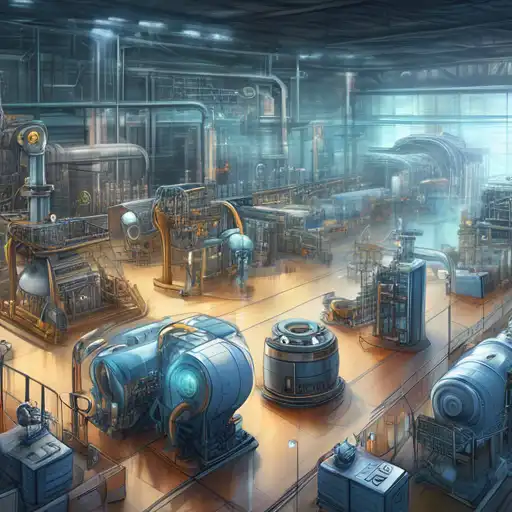Revolutionizing Industrial Automation: The Role of IoT
The Internet of Things (IoT) is transforming industrial automation in unprecedented ways. By enabling machines and devices to communicate and operate with minimal human intervention, IoT is paving the way for smarter, more efficient manufacturing processes. This article explores the profound impact of IoT on industrial automation, highlighting key benefits and challenges.
Understanding IoT in Industrial Automation
IoT refers to the network of physical devices embedded with sensors, software, and other technologies to connect and exchange data with other devices and systems over the internet. In the context of industrial automation, IoT facilitates the creation of smart factories where machinery and equipment can autonomously monitor, analyze, and optimize operations.
Key Benefits of IoT in Industrial Automation
- Enhanced Efficiency: IoT devices can predict maintenance needs, reducing downtime and increasing productivity.
- Cost Reduction: Automated processes minimize labor costs and reduce waste through precise monitoring.
- Improved Safety: IoT sensors can detect hazardous conditions, protecting workers and equipment.
- Data-Driven Decisions: Real-time data collection and analysis enable better decision-making and strategic planning.
Challenges of Implementing IoT in Industrial Automation
Despite its benefits, integrating IoT into industrial automation is not without challenges. These include concerns over data security, the need for significant upfront investment, and the complexity of managing vast amounts of data. However, with the right strategies, these obstacles can be overcome to unlock the full potential of IoT.
Future Trends: IoT and Industry 4.0
The fusion of IoT with other technologies like artificial intelligence (AI) and machine learning is driving the fourth industrial revolution, known as Industry 4.0. This evolution promises to further enhance automation, making factories not just smart, but intelligent. For more insights into the future of manufacturing, explore our article on Industry 4.0.
In conclusion, IoT is revolutionizing industrial automation by making processes more efficient, cost-effective, and safe. As technology continues to evolve, the potential for IoT in industrial settings is boundless. Embracing this change is essential for businesses looking to stay competitive in the digital age.
